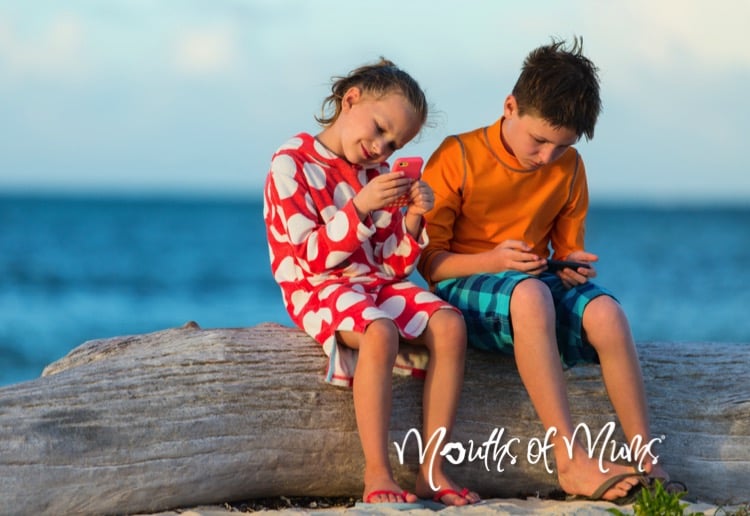Do you need to get involved with your child’s Internet usage?
You certainly want your child to be aware that you’re a concerned, involved parent. You don’t want to perceived as a smothering, over-protective one.
Indeed, it would be great if your child and his or her friends saw you as the “cool” parent in their circle. And there’s nothing “cooler” than access to various social media sites as far as children are concerned. Social media sites provide instant and global communications access to potentially millions of people. And these sites aren’t just for exchanging messages about hanging out any more, either. As digital technology rockets along at a breathtaking pace, children who lack the coordination to handle a pair of scissors are posting all sorts of photographs and award-caliber videos online with aplomb.
“Potholes” for children on the Internet
So, okay, children are obviously very comfortable (and at younger ages all the time) with the Internet, and the concept of social media. But is social media a comfortable, or even a safe place for children to be? After all, you’ve heard the real life horror stories. The cyber-bullied girl who committed suicide. The teenage boys who were blackmailed into performing “favours” for an adult sexual predator after he obtained naked “selfies” of them. And the countless children of both genders who made anonymous “friends” at these sites who turned out not to be remotely friendly (or even children) at all.
Why the Internet should be a child friendly place
We’ve gone too far down the digital highway to turn back now. Computers in the home have gone from being a novelty, to a convenience, to a necessity. And they’re not only even in the home anymore since the advent of the smartphone. These devices can be mastered by toddlers, and some parents are now sending them to school daily with children as young as kindergarten age. So, as connected as we are, and surrounded by the temptations of digital gathering places, how do you cope with social media and your kids?
As with any other activity, parents should spend time together with children online. In addition:
- They should set ground rules for online access.
- It should be made clear as to where children can go online.
- It should be made clear as to what they’re permitted to do there.
- It should be made clear as to how long they’re permitted to be there.
- Make sure that they understand that as the provider and financer of these Internet services and devices, you will be monitoring use and enforcing rules.
Is this even possible? It is, and parents have a couple of options. Some models of wireless routers have accessible logs that allow computer browsing histories to be viewed. Parents can even set up passwords to keep kids from accessing these histories themselves.
Where to go for professional help
But in these more digitally nimble times, more parents are turning to software monitoring programs like SafetyWeb (www.safetyweb.com) and SocialShield (www.socialshield.com) that allow parents to both monitor their child’s site activity and check the names of “friends” against databases. And software packages like McGruff SafeGuard (www.gomcgruff.com) allows parents to both monitor sites that children visit, and actual conversations that they have there. And Mobile Spy (http://www.mobile-spy.com/child-monitoring.html) monitors the online activities of children who spend most of their internet time on their phones.
Other ideas:
Other social networking safety tips for parents? Be aware that all legitimate social media sites have minimum ages (usually thirteen) for use. Some enterprising tykes get around this by posing as an adult and submitting information “lifted” from their or another’s parents.
Avoid temptation by keeping private account information private. Discuss what you consider to be acceptable behaviour on these sites and encourage your children to come to you when they experience problems online, or are aware of another child user experiencing them. And be aware that public access Internet sites, like libraries and cafes do not filter or forbid underage patrons’ access to sites. If you have concerns, limit your children’s use of them. Visiting these locations with them often dampens children’s enthusiasm for them, especially in the case of teenagers. Don’t be afraid to use “parental embarrassment” as a tool in your fight against digital predators.
Do you have any other tips to add or thoughts on this tricky topic? Please share in the comments below.
Image courtesy of Shutterstock.com





















-

-
-
meedee said
- 17 Aug 2021
-

-
-
mom94125 said
- 02 Sep 2016
-

-
-
mom81879 said
- 19 Aug 2016
-

-
-
ella12 said
- 16 Aug 2016
-

-
-
rovermum said
- 08 Aug 2016
-

-
-
mom134803 said
- 06 Aug 2016

-

-
-
mom101628 said
- 05 Aug 2016
-

-
-
curlytops said
- 05 Jul 2016
-

-
-
june11 said
- 05 Jul 2016
-

-
-
mom90758 said
- 05 Jul 2016
-

-
-
mom160421 said
- 05 Jul 2016
-

-
-
mum4107 said
- 05 Jul 2016
Post a comment10:23 am
10:36 am
1:19 pm
11:08 am
10:20 am
7:46 am
11:09 pm
10:17 pm
9:43 pm
6:43 pm
12:35 pm
6:59 am
To post a review/comment please join us or login so we can allocate your points.